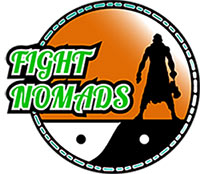Table of Contents
- Introduction
- Can Boxers Fight With Beards
- Do Beards Give You Power
- Why Do Most UFC Fighters Have Beards
- Are Beards An Advantage In UFC
- Is A Beard Not Allowed In The Olympics
- In Conclusion
Introduction
I have often been asked whether beards can absorb punches and protect the face from injury. This is a common myth in popular culture and the answer may surprise you. While a thick beard may make it appear that it can cushion a blow, the reality is that beards do not absorb punches and can actually make facial injuries worse.
The skin on the face is thin and delicate, and adding a layer of hair can cause the punch to penetrate deeper into the skin and underlying tissues, leading to more extensive damage.
In this article, we will delve deeper into the anatomy of the face and the effects of facial hair on injury.
Can Boxers Fight With Beards
Boxing is a sport that requires quick reflexes, agility, and precise movements, and fighters must be in top physical condition to perform at their best. The question of whether boxers can fight with beards has been a topic of debate among fans and professionals alike. Some argue that facial hair can obstruct a fighter’s vision, while others believe it can provide an advantage by absorbing punches. However, there is limited scientific evidence to support either claim.
Studies have shown that beards do not provide any significant protective benefit during a fight, and can actually increase the risk of injury. A study conducted by the American Journal of Sports Medicine found that facial hair can create friction against the gloves and cause abrasions and cuts. Another study by the Journal of Craniomaxillofacial Trauma found that the thickness of a beard does not significantly affect the force of impact from a punch.

In addition to the lack of protection, beards can also cause hygienic concerns for fighters. Boxing is a contact sport and there is a risk of transmitting communicable diseases through cuts and abrasions. The International Boxing Association (AIBA) has strict rules regarding grooming and hygiene, and fighters are required to shave their beard prior to a match.
In conclusion, while beards may look impressive, they do not provide any protective benefits during a fight and can actually increase the risk of injury. Boxers must keep their facial hair trimmed to reduce the risk of cuts and abrasions, and maintain good hygiene during matches. In the world of professional boxing, a clean-shaven face is still the preferred and accepted norm.
Do Beards Give You Power
The idea that beards give a man power is a long-standing cultural myth, but is there any scientific evidence to support this claim? To answer this question, it’s important to examine the cultural, social, and psychological aspects of facial hair.
Studies have shown that men with beards are often perceived as being more mature, masculine, and socially dominant. In one study, participants rated men with facial hair as being more attractive, confident, and aggressive compared to clean-shaven men. This perception of increased masculinity can have a positive effect on a man’s self-esteem and confidence and may contribute to the perception of power.
However, it’s important to note that this perception of power is subjective and culturally based. In some cultures, a beard is seen as a symbol of wisdom, while in others, it may be viewed as unkempt and unprofessional.

In addition to social and cultural perceptions, there is also a psychological aspect to consider. Research has shown that people are more likely to follow leaders who have facial hair, as they are perceived as being more confident and trustworthy. This psychological influence can lead to a sense of power and authority in both personal and professional relationships.
In conclusion, while beards may not physically give a man power, they can contribute to the perception of power and authority. This perception is based on cultural, social, and psychological factors, and can have a positive effect on a man’s self-esteem and confidence. However, it’s important to note that this perception of power is subjective and may vary between cultures and individuals.
Why Do Most UFC Fighters Have Beards
The Ultimate Fighting Championship (UFC) is a highly competitive mixed martial arts organization, and many of its fighters sport impressive beards. So, why do so many UFC fighters have beards? The answer is a combination of cultural, personal, and practical reasons.
One reason is cultural. Beards have long been associated with masculinity and toughness, and in the world of combat sports, a beard can help convey an image of strength and dominance. This cultural association with masculinity can be a source of pride and self-esteem for fighters, who may view their beards as a symbol of their strength and fighting spirit.

Another reason is personal preference. Some fighters simply prefer the look of a beard and choose to wear one for aesthetic reasons. For others, growing a beard may be a way to express their individuality and separate themselves from the pack.
There are also practical reasons why many UFC fighters have beards. During fights, fighters may experience cuts and abrasions on their faces, and a beard can help conceal these injuries and protect against further damage. In addition, beards can also provide some protection from the sun, wind, and cold temperatures, which can be especially important for outdoor fights.
In conclusion, there are a variety of reasons why many UFC fighters choose to wear beards, including cultural association, personal preference, and practical considerations. Whether it’s for cultural, personal, or practical reasons, beards have become a common and iconic part of the world of mixed martial arts.
Are Beards An Advantage In UFC
The question of whether beards are an advantage in the Ultimate Fighting Championship (UFC) is a complex one and has no clear-cut answer. While beards have long been associated with masculinity and toughness. There is limited scientific evidence to support the idea that beards provide a physical advantage in the ring. However, beards can have an impact on a fighter’s appearance, self-esteem, and mental state, which can, in turn, affect their performance.
Studies have shown that beards can provide some protection from cuts and abrasions during fights, as well as from the sun, wind, and cold temperatures. This can help reduce distractions and allow fighters to focus on their performance. In addition, the cultural association with masculinity and toughness can have a positive impact on a fighter’s self-esteem and confidence, which can boost their performance.

However, it’s important to note that the impact of a beard on a fighter’s performance is subjective and can vary between individuals. Some fighters may find that wearing a beard has a positive impact on their confidence and performance, while others may find that it is a distraction or a hindrance.
In conclusion, while there is limited scientific evidence to support the idea that beards provide a physical advantage in the UFC, they can have an impact on a fighter’s appearance, self-esteem, and mental state, which can affect their performance. Ultimately, whether a beard is an advantage or not will depend on the individual fighter and their personal preferences.
Is A Beard Not Allowed In The Olympics
The International Olympic Committee (IOC) does not explicitly prohibit athletes from growing beards. But there are certain grooming regulations that athletes must adhere to during competition. These regulations are in place to maintain a level of uniformity and to avoid any potential hazards during competition.
In most Olympic sports, athletes are required to wear uniform clothing and are discouraged from wearing any additional accessories, including beards. However, there are some sports, such as weightlifting and wrestling. Where beards are not explicitly prohibited, but can still be considered a potential hazard. For example, in weightlifting, a beard could get caught in the barbell during a lift, which could result in injury.

Despite the lack of an explicit ban on beards, many Olympic athletes choose to shave or groom their beards in order to adhere to the general grooming regulations and to maintain a clean-shaven appearance. In addition, athletes may also choose to shave their beards for personal hygiene reasons, as beards can trap sweat and bacteria, which can be a concern during intense physical activity.
In conclusion, while the IOC does not explicitly prohibit athletes from growing beards, there are certain grooming regulations that must be followed during competition. The decision to wear a beard or not is ultimately up to the individual athlete, but most Olympic athletes choose to shave or groom their beards in order to adhere to the grooming regulations and for personal hygiene reasons.
In Conclusion
In conclusion, beards have been a topic of interest across various fields including sports, fashion, and health. In the world of combat sports such as the Ultimate Fighting Championship (UFC), many fighters wear beards for cultural, personal, or practical reasons.
However, the impact of a beard on a fighter’s performance can vary between individuals and there is limited scientific evidence to support the idea that beards provide a physical advantage in the ring. In the Olympics, while beards are not explicitly prohibited, athletes must adhere to certain grooming regulations and many choose to shave or groom their beards in order to maintain uniformity and avoid any potential hazards during competition.
Ultimately, whether or not to wear a beard is a personal decision and can depend on various factors such as cultural association, personal preference, practical considerations, and grooming regulations.

Hi, I’m Ross and I am nearer to 50 than 40! I have been involved in Martial arts and fitness for most of my life. I wanted to share my journey with the world. So that others too can learn from my experiences.
